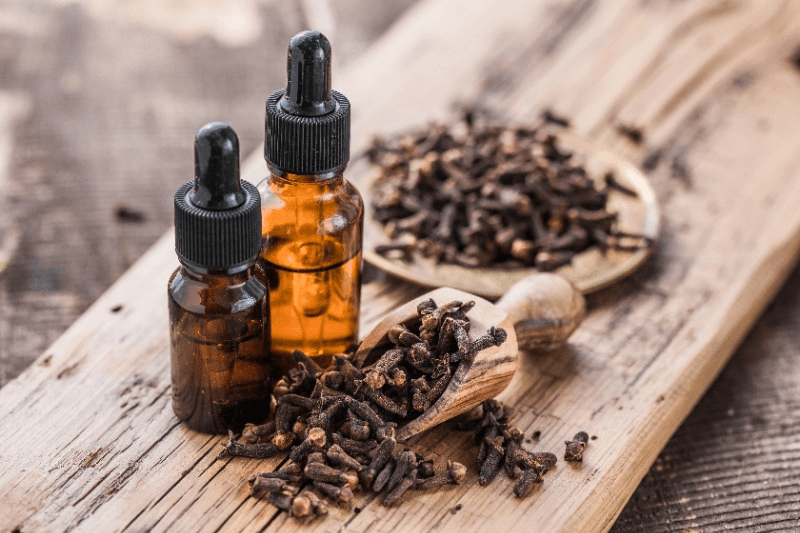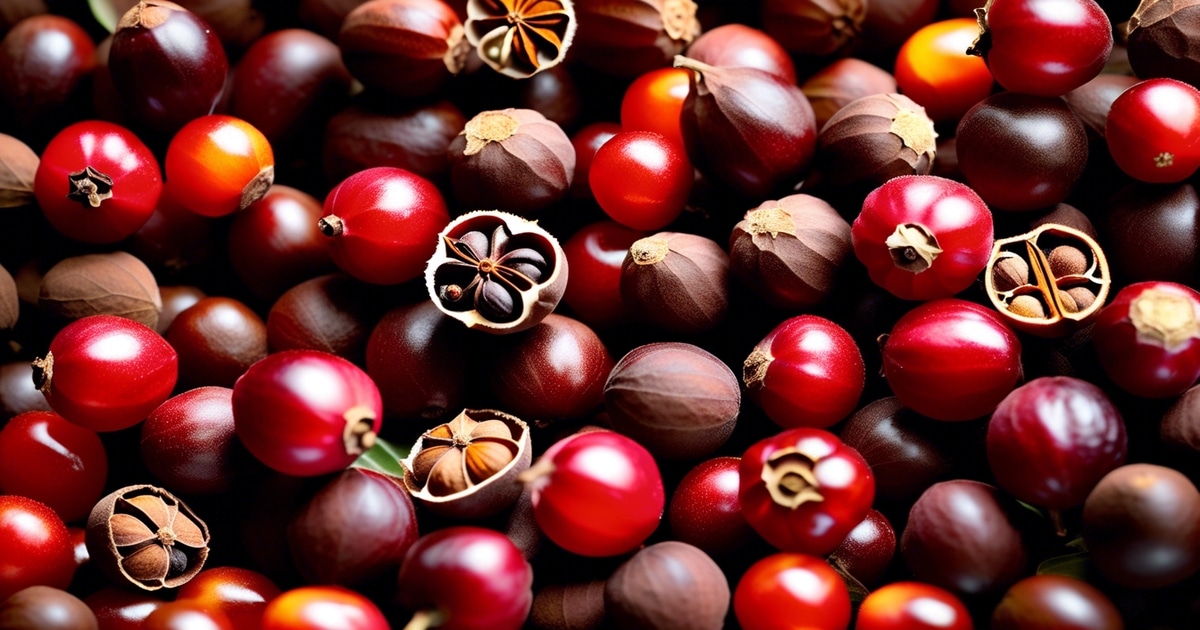Key Takeaways
-
Allspice, a versatile ingredient, offers a range of health benefits, including digestive support, menopausal symptom relief, and potential antimicrobial properties.
-
Its rich nutritional profile, containing essential vitamins, minerals, and potassium, makes it a valuable addition to a balanced diet.
-
Incorporating allspice, a versatile ingredient, into your cooking can enhance the flavor of various dishes, adding depth and warmth to savory and sweet recipes.
-
When using allspice, it’s important to be mindful of potential risks and side effects, especially in large quantities or for individuals with specific health conditions.
-
Consider adding allspice flavor to your diet by sprinkling it on roasted vegetables, adding it to marinades, or using it in baking for a delightful twist.
-
Allspice can be a versatile and flavorful addition to your lifestyle, whether for its health benefits or culinary appeal.
Allspice, derived from the dried berries of the Pimenta dioica plant, offers many benefits. From its aromatic flavor profile to its potential health advantages, allspice is versatile, adding depth to savory and sweet dishes. This blog post delves into the diverse benefits of allspice, including its antioxidant properties and digestive aid qualities. We will explore how incorporating allspice into your culinary repertoire can elevate your meals’ taste and nutritional value.
Understanding Allspice and Its Uses
Versatile Ingredient
Allspice, derived from the dried berries of the Pimenta dioica plant, is a versatile ingredient with numerous benefits. Its warm and aromatic flavor makes it popular in Caribbean, Middle Eastern, and Latin American cuisines. Due to its unique aroma, which resembles a blend of cinnamon, nutmeg, and cloves, allspice adds depth and complexity to savory and sweet dishes.
Allspice is used as a culinary spice and boasts medicinal properties. It contains essential oils such as eugenol, a single spice with anti-inflammatory and anesthetic effects. This makes allspice beneficial for treating digestive issues like bloating, gas, and indigestion.
Culinary Uses
Allspice is an excellent substitute for other spices like cinnamon or nutmeg when unavailable. It can be used in whole-berry form or ground into powder. Whole berries are commonly added to soups, stews, pickles, and brines for meats like jerk chicken or pork dishes. Meanwhile, allspice powder is perfect for baking cakes, cookies, or fruit-based desserts.
Moreover, Allspice enhances the flavor profile of marinades for meats. It pairs well with fruits like apples or pears in pies and compotes. In beverages, it elevates the taste of mulled wine or cider during colder months. Additionally, it can be infused into syrups for cocktails.
Nutritional Profile of Allspice
Essential Oils and Antioxidant Properties

Allspice is packed with essential oils, including eugenol, a compound known for its antioxidant properties. These antioxidants help protect the body’s cells from damage caused by free radicals. The spice contains vitamins such as C and A, which are crucial for maintaining a healthy immune system and promoting good vision.
The presence of eugenol in allspice not only contributes to its distinct aroma but also offers potential health benefits. For instance, eugenol has been linked to anti-inflammatory effects, making Allspice an attractive addition to the diet for those seeking natural ways to reduce inflammation.
Vitamins, Minerals, Fiber, and Protein
Apart from essential oils and antioxidants, allspice also provides vital minerals like iron and manganese, which play key roles in various bodily functions. Iron is essential for transporting oxygen throughout the body, while manganese supports bone health and helps regulate blood sugar levels.
Moreover, this versatile spice contains significant amounts of dietary fiber, aiding digestion by promoting regular bowel movements. It also offers small amounts of protein necessary for muscle repair and growth.
Incorporating allspice into your dishes enhances their flavor profile and introduces these valuable nutrients into your diet.
Digestive Health and Allspice
Aid in Digestion
Allspice has long been used to aid digestion and alleviate digestive discomfort. The eugenol found in allspice is a natural remedy for reducing gas and bloating, helping soothe the stomach. This makes it an excellent meal addition, especially for individuals who struggle with digestive issues.
Traditional folk medicine often used allspice to address digestive problems such as indigestion and diarrhea. Its carminative properties make it effective in promoting healthy digestion by preventing gas formation in the gastrointestinal tract. Incorporating allspice into one’s diet can help maintain a healthy digestive system.
Relieving Discomfort
Allspice has stuff that might help your tummy work better. It could be easier if you have tummy troubles like IBS or infections. By incorporating allspice into dishes such as chicken blends or plant pimenta-infused recipes, individuals can experience relief from digestive issues.
-
Aids digestion
-
Reduces gas and bloating
-
Carminative properties promote healthy digestion
-
Used traditionally in folk medicine for indigestion and diarrhea relief.
Allspice for Menopausal Symptom Relief
Alleviating Menopausal Symptoms
Some studies suggest that allspice may help alleviate menopausal symptoms like hot flashes and mood swings. The spice’s phytoestrogens could potentially offer relief from menopausal discomfort. For example, women experiencing hot flashes might find relief by incorporating allspice into their diet.
Allspice’s potential to manage menopausal symptoms is linked to its anti-inflammatory properties. These properties can reduce the severity of various discomforts associated with menopause, such as aches and fatigue. By consuming allspice, individuals undergoing this stage of life might experience reduced physical and emotional symptoms.
Plant Essential Oils and Aging

Including plant essential oils, such as those found in allspice, can positively affect aging-related issues. Allspice’s phytoestrogens play a role in managing hormonal fluctuations during menopause, which can lead to mood swings and other related challenges. The anti-inflammatory nature of allspice may aid in alleviating joint pain or muscle aches often experienced during this phase.
Antimicrobial Properties of Allspice
Antibacterial Effects
Allspice, known for its antimicrobial properties, has been found to exhibit activity against certain bacteria and fungi. Research studies have highlighted the potential antibacterial effects of allspice’s components, particularly eugenol. This compound has shown promise in combating bacteria, making it a valuable natural remedy.
The presence of eugenol in allspice contributes to its ability to combat harmful bacteria effectively. Studies have demonstrated that eugenol can inhibit the growth of various bacteria, showcasing the spice’s potential as an effective antimicrobial agent. For example, research suggests that eugenol can help fight off pathogens like E. coli and Salmonella.
Food Preservation
One significant application of allspice’s antimicrobial properties is in food preservation. Due to its ability to inhibit the growth of microorganisms, including bacteria and fungi, allspice is used as a natural preservative for food products. Individuals can prolong their meals’ shelf life by incorporating allspice into food items or using it during cooking while benefiting from its distinctive flavor profile.
-
Allspice exhibits potent antimicrobial activity.
-
Eugenol in allspice demonstrates promising antibacterial effects.
-
The spice is valuable for food preservation due to its antimicrobial properties.
Allspice in Cardiovascular Health
Antioxidant Content
Allspice contains antioxidants that research suggests may benefit cardiovascular health. These antioxidants help protect the heart by neutralizing harmful free radicals, which can damage cells and contribute to heart disease.
Studies indicate that the antioxidant properties of allspice could play a role in reducing the risk of cardiovascular diseases. By combating oxidative stress, these compounds support overall heart health and function.
Anti-Inflammatory Properties
The anti-inflammatory properties found in allspice are believed to impact cardiovascular wellness positively. Inflammation is associated with various heart conditions, including atherosclerosis and hypertension.
Consuming allspice in moderation may help reduce inflammation within the body, subsequently benefiting overall cardiovascular health. This natural approach to managing inflammation can complement other healthy lifestyle choices for maintaining a healthy heart.
Incorporating allspice into one’s diet as part of an overall balanced and nutritious eating plan can improve cardiovascular well-being. However, it’s important to remember that moderation is key when adding any new ingredient or food item to your diet.
Culinary Uses of Allspice in Enhancing Flavor
Versatile Ingredient
Allspice is a versatile spice that elevates both sweet and savory dishes. Its ability to impart a unique flavor makes it an essential ingredient in various culinary creations.
When used in marinades, Allspice adds depth and complexity, enhancing the overall taste of meats before they are cooked. This versatile spice also contributes to the richness of stews, providing a warm and aromatic flavor profile.
Creating Complex Flavors
Combining allspice with other spices, such as cloves and cinnamon, can result in complex and intriguing flavor combinations. For example, when mixed with cinnamon, allspice can warm baked goods like apple pie or oatmeal cookies.
Using allspice alongside cloves can create an aromatic blend perfect for desserts like spiced cakes or gingerbread cookies. The variety of ways this single spice complements different ingredients showcases its importance in cooking diverse dishes.
Potential Risks and Side Effects of Allspice
Adverse Reactions
Ingesting large amounts of allspice can lead to adverse effects such as nausea or allergic reactions in some individuals. It’s important to use allspice in small amounts, especially for those sensitive to its components. For instance, consuming a dish heavily seasoned with allspice might trigger stomach discomfort or an allergic response in susceptible individuals.
Allergic Reactions: Allergies to allspice are rare but possible. Some people may experience itching, hives, or swelling symptoms after consuming allspice dishes. Individuals with known food allergies must be cautious when using this spice.
Pregnancy Considerations
Excessive amounts of allspice during pregnancy should be avoided due to its potential effects on uterine contractions. Expectant mothers should exercise moderation when incorporating allspice into their diet. Overconsumption could potentially lead to unwanted complications related to uterine health and pregnancy.
Digestive Sensitivity: People with sensitive stomachs or digestive issues should consume allspice in moderation. Large quantities of this spice may exacerbate existing digestive problems such as acid reflux, indigestion, or irritable bowel syndrome (IBS). Moderation is key.
How to Incorporate Allspice into Your Diet
Flavorful Additions
Allspice can be a versatile way to enhance the taste of various dishes. For instance, adding a pinch of allspice to oatmeal or smoothies can infuse them with a warm and comforting flavor. This simple addition provides a pleasant taste and the potential health benefits associated with allspice.
Incorporating allspice for roasted vegetables or grilled meats is another excellent way to elevate their taste profile. The aromatic and slightly peppery notes of allspice can complement the natural flavors of these foods, creating a delightful culinary experience without the need for excessive salt or unhealthy condiments.
Culinary Experimentation
Incorporating allspice into homemade sauces or salad dressings can introduce an unexpected twist to familiar recipes. By blending this spice into your favorite sauce, you may discover new layers of depth and complexity in its flavor profile. Similarly, using it in salad dressings can add an intriguing dimension that elevates your salads from ordinary to extraordinary.
Final Remarks
In conclusion, allspice is good for cooking and medicine. It has many nutrients and can help with digestion, heart health, and fighting germs. It might also help with menopause. But be careful because it could have some bad effects too. You can use allspice in your food to stay healthy.
For those seeking to optimize their health and culinary experiences, integrating allspice into their daily routines can be a simple yet impactful step. Whether used in cooking or for its potential health benefits, allspice is a versatile and beneficial spice worthy of exploration.
Frequently Asked Questions
What are the key uses of allspice?
Allspice is versatile and can be used to enhance flavor in both sweet and savory dishes. It’s commonly used in baking, marinades, pickling, and seasoning meats. It’s popular in Caribbean cuisine for its aromatic properties.
Is allspice beneficial for digestive health?
Allspice has been linked to improving digestion due to its carminative properties. It can help alleviate gas, bloating, and indigestion. Consuming in moderation as part of a balanced diet may support overall digestive wellness.
Can allspice aid in relieving menopausal symptoms?
Some studies suggest that allspice might offer relief from certain menopausal symptoms like hot flashes and mood swings due to its phytoestrogen content. However, further research is needed to understand its effects on menopausal symptoms fully.
Are there any potential risks associated with consuming allspice?
While generally safe when used in cooking or as a spice, excessive consumption of allspice could lead to adverse effects such as allergic reactions or gastrointestinal issues. Moderation is key when incorporating it into your diet.
How can I incorporate allspice into my diet?
You can easily integrate allspice into your diet by using it as a seasoning for meats like pork or chicken, adding it to baked goods such as cakes or cookies for a warm flavor profile, or sprinkling it over roasted vegetables for an extra layer of depth and warmth.

